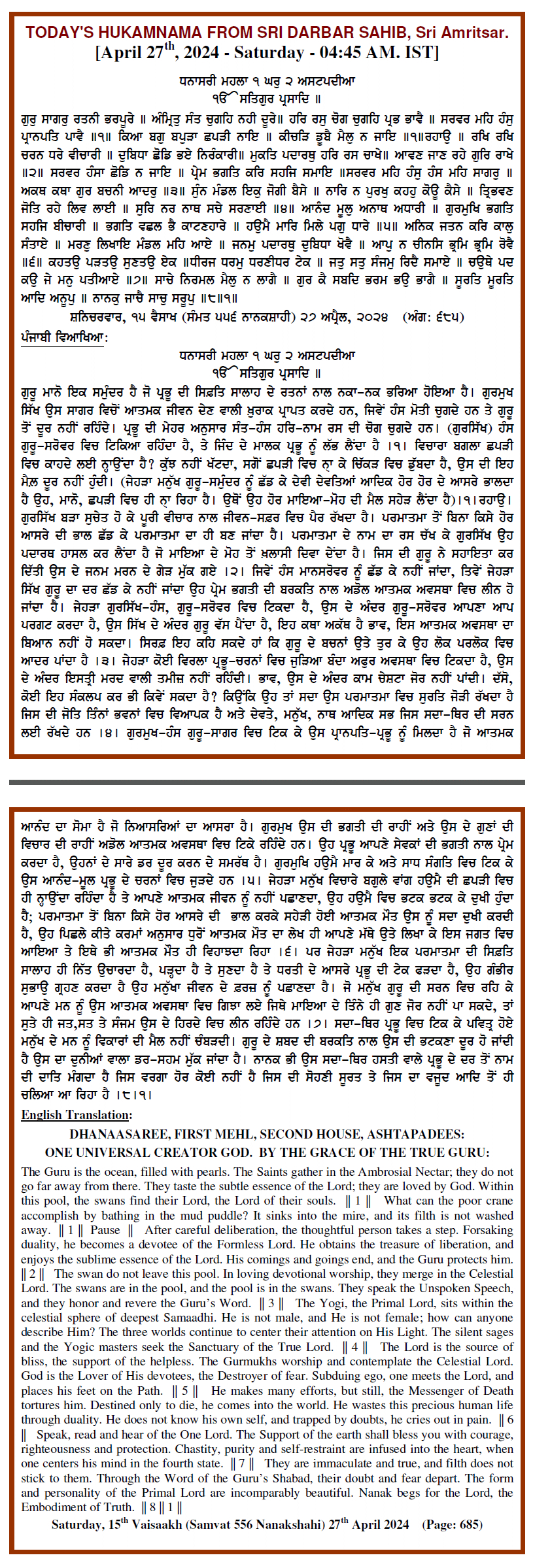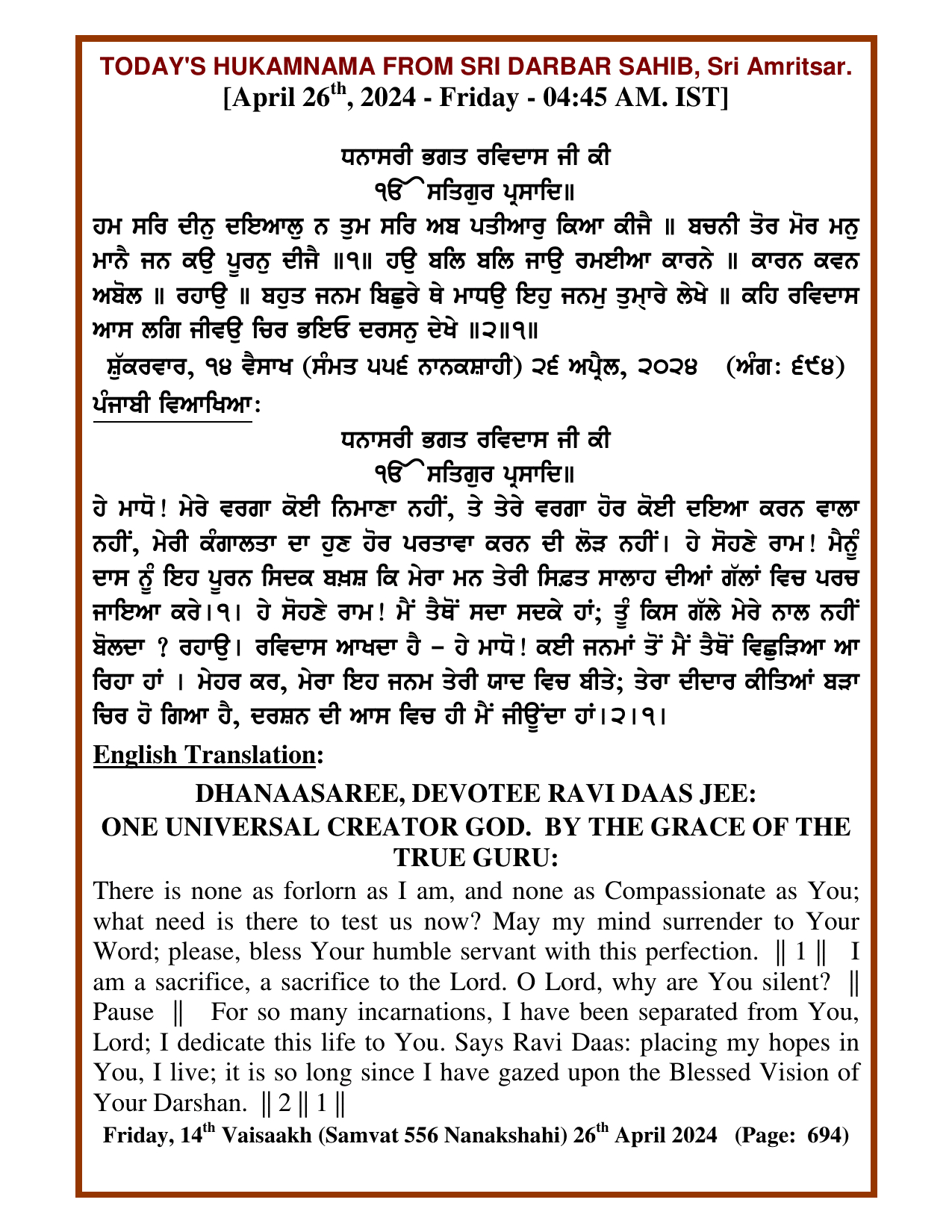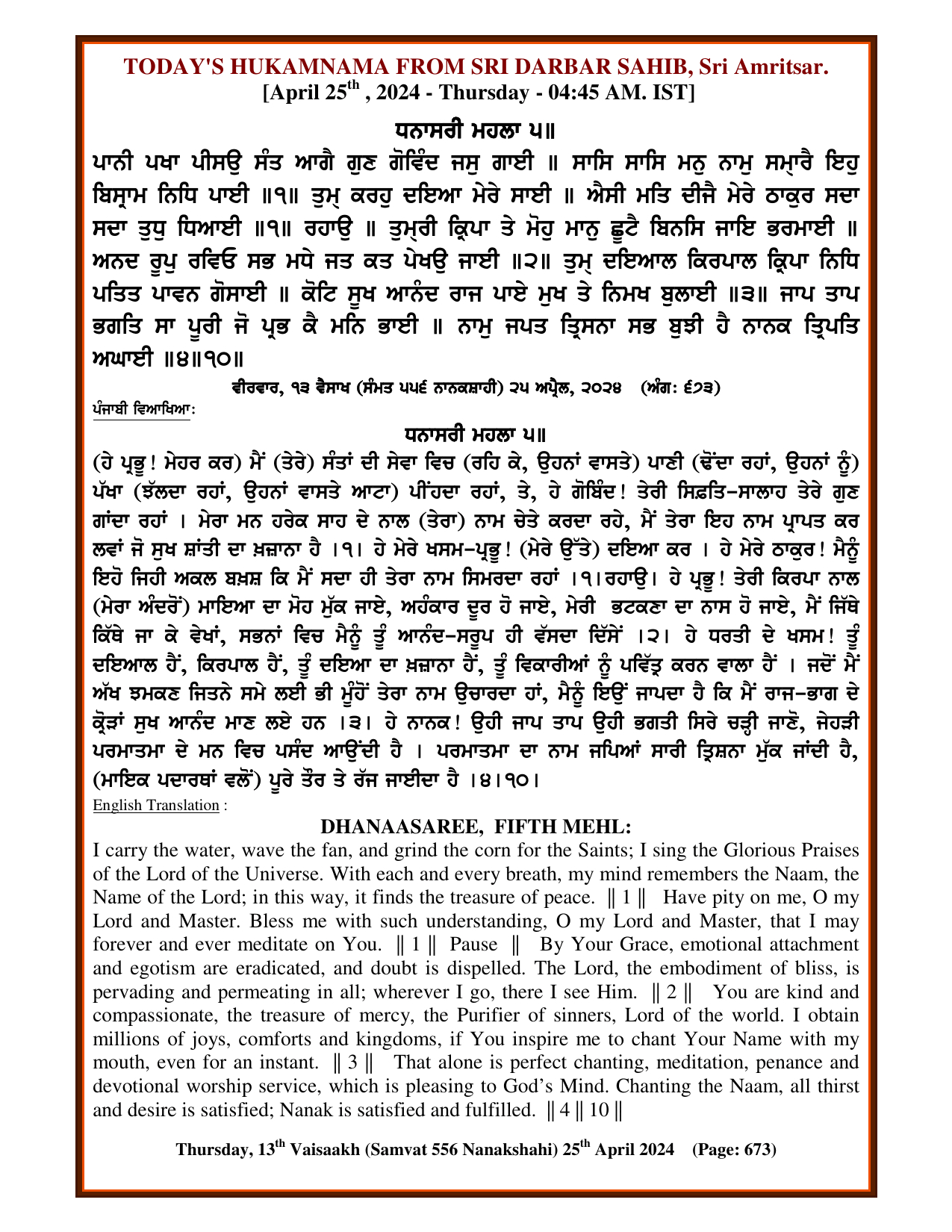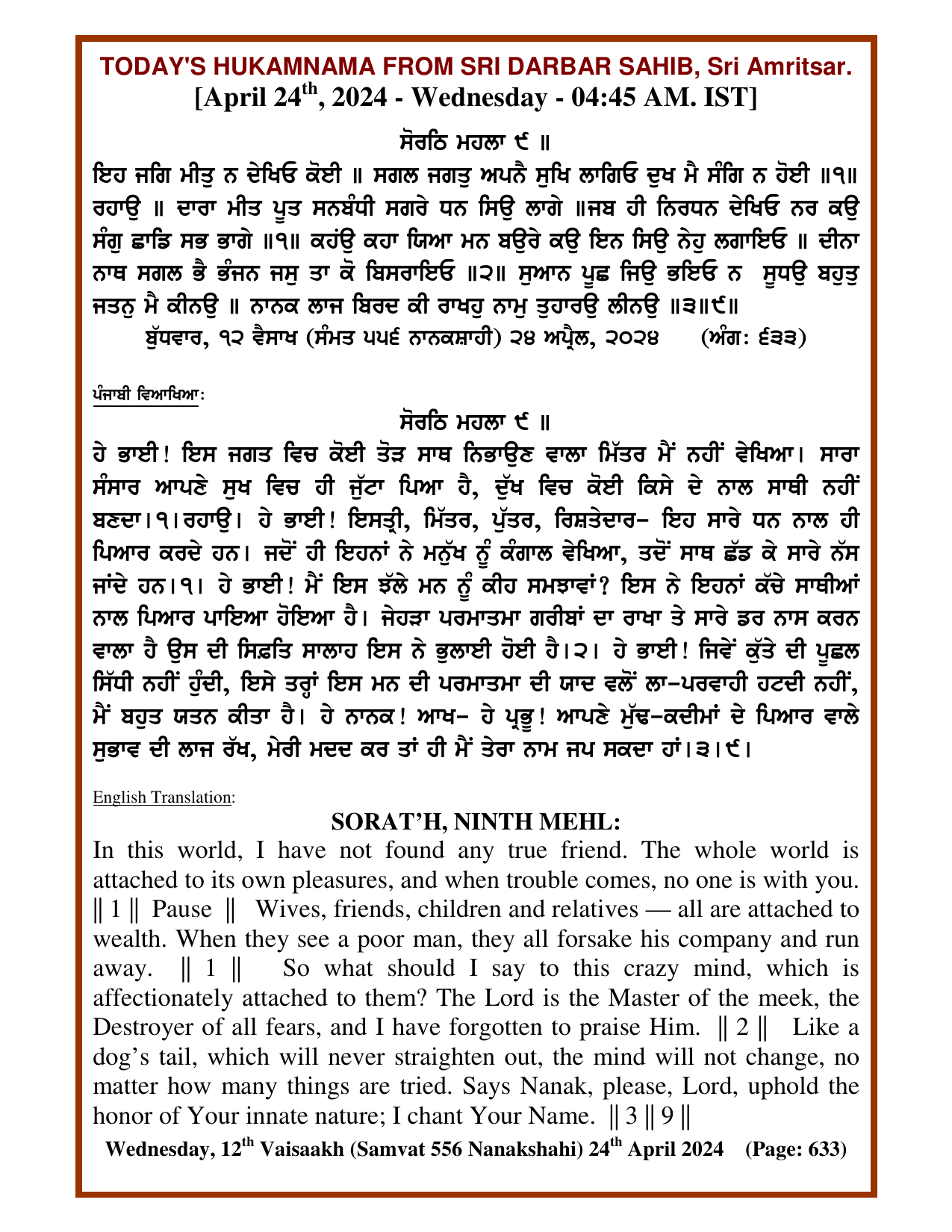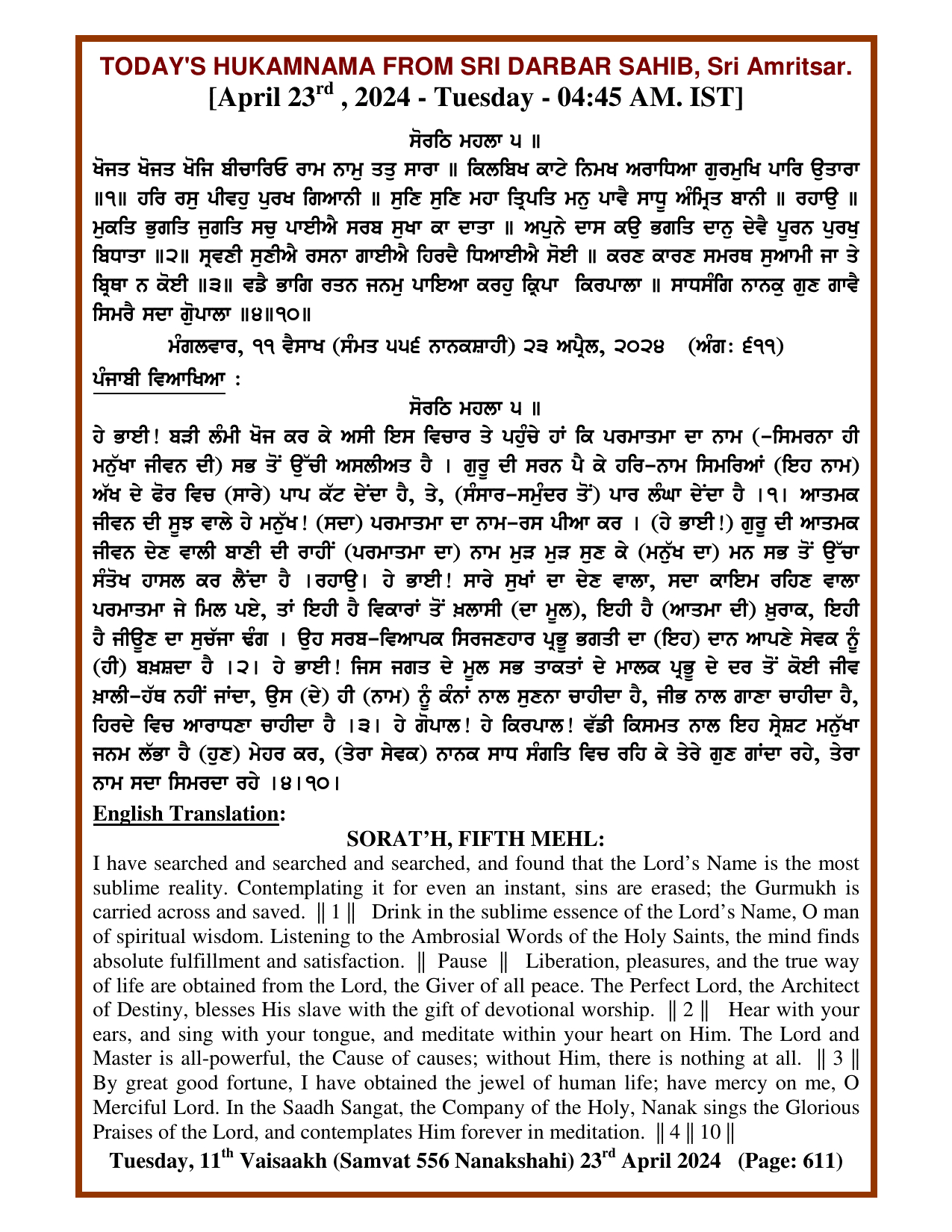Today’s Mukhwak | Today’s Hukamnama | SACHKHAND SRI DARBAR SAHEB AMRITSAR
- Today’s MUKHWAK Sri Darbar Saheb Amritsar – April 27th, 2024
- Today’s MUKHWAK Sri Darbar Saheb Amritsar – April 26th, 2024
- Today’s MUKHWAK Sri Darbar Saheb Amritsar – April 25th, 2024
- Today’s MUKHWAK Sri Darbar Saheb Amritsar – April 24th, 2024
- Today’s MUKHWAK Sri Darbar Saheb Amritsar – April 23rd, 2024
- Today’s MUKHWAK Sri Darbar Saheb Amritsar – April 22nd, 2024
- Today’s MUKHWAK Sri Darbar Saheb Amritsar – April 21st, 2024
- Today’s MUKHWAK Sri Darbar Saheb Amritsar – April 20th, 2024
- Today’s MUKHWAK Sri Darbar Saheb Amritsar – April 19th, 2024
- Today’s MUKHWAK Sri Darbar Saheb Amritsar – April 18th, 2024
About Hukam
Definition:
The word hukam means, decree, order, command, or sanction.
In Sikhism, the term hukam refers to random verse read from the sacred scripture of Guru Granth. Gobind Singh, the tenth Guru, bequeathed his title of Guru to the scripture at the time of his death. He declared that Guru Granth should be his successor for all time. A hukam is read, in order to obtain the Guru’s divine order, at the close of every Sikh worship service, or ceremony.
To obtain a hukam, an Ardas, or prayer of petition is first performed. The reader ceremoniously opens Guru Granth Sahib turning to a random verse. Guru Granth Sahib is written in Gurmukhi script and its hymns are composed in the melodious hue of classicraag. The language used is poetic not used in contemporary conversation. Translations are available in several languages:
- Punjabi
- Hindi
- English
- Spanish
No translation can perfectly expressGurbani , the Guru’s word, but may be used to enhance understanding.
Pronunciation: Hukam is pronounced hook – um.
Also Known As: Hukamnama – a written order.
Examples:
Sikhs believe that divine will is responsible for creation and destiny. A hukam is read at the close of every Sikh ceremony an worship service. A hukam is sought for everysignificant occasion in a Sikhs life.
Guru Nanak wrote:
” Hukam manae sirdaar dar deebaanee-ai ||
One who respects the Hukam of the Lord’s Command is honored and respected in the Court of the Lord.” SGGS||142


